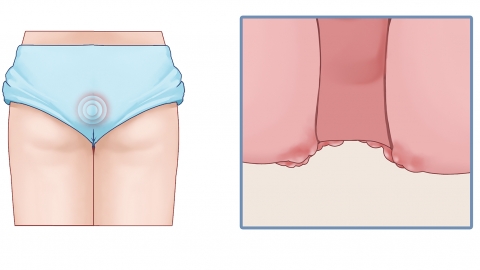肛交的危害是What
Generally, the risks of anal intercourse include rectal mucosal injury, infection with infectious diseases, impaired sphincter function, psychological problems, and gastrointestinal dysfunction. It is recommended to seek timely medical advice and receive treatment under a doctor's guidance. Detailed explanations are as follows:

1. Rectal Mucosal Injury
The rectal mucosa is relatively fragile and lacks the elasticity and lubrication mechanisms found in the vagina. Anal intercourse without sufficient lubrication or overly aggressive movements can easily cause friction or tearing of the rectal mucosa, resulting in bleeding and an increased risk of infection. Severe cases may even lead to rectal perforation.
2. Infection with Infectious Diseases
The anal and rectal regions harbor numerous bacteria, such as Escherichia coli. Once the mucosa is damaged during anal intercourse, these bacteria can easily enter the bloodstream, causing localized or systemic infections. Additionally, anal intercourse is a high-risk route for transmitting sexually transmitted diseases such as HIV/AIDS, syphilis, and genital warts, significantly increasing the likelihood of infection and posing serious health threats.
3. Impaired Sphincter Function
The anal sphincter plays a crucial role in controlling defecation. Frequent anal intercourse may overextend the sphincter muscles, causing them to lose their original tension and elasticity. Prolonged exposure to this condition can lead to sphincter dysfunction, resulting in fecal incontinence, which brings significant distress and inconvenience to daily life.
4. Psychological Problems
Societal attitudes often carry certain biases against anal intercourse, and individuals engaging in it may experience internal moral conflicts and feelings of shame. Accumulated psychological burdens can easily trigger mental health issues such as anxiety and depression, affecting both psychological well-being and normal life and social interactions.
5. Gastrointestinal Dysfunction
Repeated anal stimulation can disrupt the normal physiological rhythm and function of the intestines. Intestinal motility may become abnormal, and secretion of digestive fluids may also be affected. This can lead to symptoms of gastrointestinal dysfunction, such as indigestion, abdominal pain, and diarrhea, which compromise overall health.
Anal intercourse is an unconventional sexual practice that carries multiple risks. It is advisable to avoid attempting this sexual behavior in daily life to prevent potential health complications.





